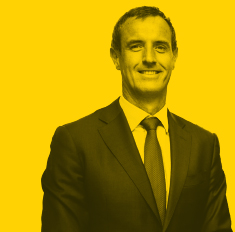
I am pleased to present the European Union (EU) Serious and Organised Crime Threat Assessment 2017 (SOCTA 2017). The SOCTA 2017 is Europol’s flagship product providing information to Europe’s law enforcement community and decisionmakers. It serves as the cornerstone of the EU Policy Cycle for Serious and Organised Crime.
The Policy Cycle ensures effective cooperation between national law enforcement agencies, EU Institutions, EU Agencies and other relevant partners in the fight against serious and organised crime. This is the second edition of the SOCTA, following its inaugural edition released in 2013. The SOCTA 2017 delivers a set of recommendations based on an indepth analysis of the major crime threats facing the EU. The Council of Justice and Home Affairs Ministers will use these recommendations to define priorities for the coming four years.
The SOCTA 2017 is the outcome of the work of many contributors from law enforcement authorities in the Member States, in countries with strategic and operational agreements with Europol, our institutional partners in the EU and Europol.
Europol is a key partner to the Member States in meeting security challenges by providing a highly developed platform for the exchange of criminal intelligence as well as analytical and operational support for some of the most complex international investigations in the EU to date. In drafting the SOCTA 2017, Europol harnessed this unique information position.
The SOCTA 2017 represents the outcome of the largest data collection on serious and organised crime ever undertaken in the EU. Europol has been able to use its singular intelligence capability as the information hub for criminal intelligence in the EU to analyse and identify the key crime threats facing the EU today.
Informed by its analysis of the prevailing threat, the SOCTA 2017 identifies a number of key priorities, which, in Europol’s view, require the greatest concerted action by Member States and other actors to ensure the most effective impact. These include cybercrime, the production, trafficking and distribution of illicit drugs, migrant smuggling, organised property crime, and the trafficking in human beings (THB). In addition, Europol recommends focussing on three cross-cutting crime threats with a significant impact across the spectrum of serious and organised crime – document fraud, money laundering and the online trade in illicit goods and services. The SOCTA 2017 also explores potential links between serious and organised crime and terrorism.
In 2013, Europol reported the presence of at least 3,600 internationally operating Organised Crime Groups (OCGs) in the EU. In the SOCTA 2017, we identify approximately 5,000 international OCGs currently under investigation in the EU. This increase is primarily a reflection of a much improved intelligence picture. It is also an indication of shifts in criminal markets and the emergence of smaller groups and individual criminal entrepreneurs in specific criminal activities, especially those taking place online.
These developments highlight the complex dynamics that shape the serious and organised crime landscape in the EU. They also emphasise the need for the continued and enhanced exchange of information between law enforcement authorities as part of their day-to-day business. Connecting law enforcement authorities and facilitating the real-time 24/7 exchange of information remains Europol’s core business.
The SOCTA 2017 is a forward-looking document that both describes and anticipates emerging threats from serious and organised crime. In this edition of the SOCTA, we highlight the role of technology in particular. Criminals have always been adept at exploiting technology. However, the rate of technological innovation and the ability of organised criminals to adapt these technologies have been increasing steadily over recent years. Developments such as the emergence of the online trade in illicit goods and services are set to result in significant shifts in criminal markets and confront law enforcement authorities with new challenges.
In identifying and specifying these challenges, Europol hopes to provide a tangible contribution to the efforts of Member States and the EU in fighting serious and organised crime. I look forward to Europol’s continued support for and cooperation with law enforcement agencies and other partners in the EU and beyond.
Rob Wainwright, Director of Europol